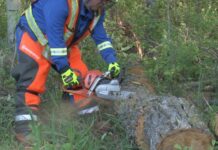The term “Free Speech” denotes the independence to place an opinion or express any point of view without the fear of being judged or punished. The most important application of free speech is to protect the unpopular opinions on certain issues and subject matters. There are people with power, and there are people with unpopular perspectives on different subjects.
Now, a free speech campaign essentially protects those people with unpopular opinions from the people with power and administrative authority.
Now, of late, the idea of free speech is being disrupted and hindered on various levels, across the university campuses in and around Australia. So, would you like to explore the bigger picture? Take some time to read this informative blog. It shall guide you through the scenario and help you develop a fair idea with relevant information.
Here you go!
Free Speech Prohibition in Australian University Campuses – Background Overview
According to reports, public colleges and universities cannot put restrictions on free speech. However, there are certain universities and other academic institutes that put restrictions on offensive speech or overly controversial and unacceptable opinions. Most importantly, Australia is a part of the seven key international human rights treaties.
According to www.ag.gov.au, the right to freedom of expression and opinion is lucidly explained and established in articles 19 and 20 of the International Covenant on Civil and Political Rights.
So, if we are to consider these legal amendments and declarations, it seems that no academic institution can restrict free speech in any aspect. Then what is the fuss all about?
As per Jacobinmag.com, Australian conservatives have claimed that “woke” students and left-wing activists/lecturers are posing a threat to free speech on university campuses.
Also, it has been mentioned that the Australian right strategy is almost similar to that of its counterparts in Britain. It is said that, having overseen years and years of catastrophic cuts to higher academics, the Coalition is now trying to wage war on academic freedom as well.
Their primary objective is to track down the left-wing activists, marginalize progressive education and push university education to the right.
Thus, with such contradictions popping up every now and then, along with disruptive undertones accompanied by extreme activism, things are getting more critical with passing day.
Neither we can afford to put restrictions on free speech nor we can encourage the idea of violent contradictions in and around the university campuses.
Downsides of Imposing Restrictions on Free Speech in University Campuses
Academic institutions, including high schools, colleges and universities are said to be the stepping stones of success in terms of shaping up a bright future and encouraging cognitive learning. College and university campuses are places where students get introduced to an all-new world of opinions, contradictions, the knowns and the unknowns. Now, if the practice of free speech and placement of opinion gets lifted, then how would students cope with the world order.
Here are a few downsides of free speech restrictions on Australian university campuses. Take note of the same to get the hang of the bigger picture in this context.
- Lifting or prohibiting free speech on university campuses will only turn students critically conservative.
- This is, in no way, a good thing to happen in the first place. As students tend to get more conservative, they will be losing strong grounds for progressive argument.
- The youngsters will never be able to acknowledge the importance of welcoming what’s new and embrace the change for the greater good.
- For example, every student looks for a professional assignment/essay writer in private tutors.
- But, seldom would acknowledge the fact that one can seek professional essay help online and get the job done via digital learning benefits.
- That’s what happens when you refuse to expand your ideas or consider the other facets apart from the ones you are already aware of.
- Most critically, the prohibition of free speech will only make the students coward in terms of expressing their perspectives in the near future.
- This, as a result, will lead to the youngsters sticking to narrow opinions, taking wrong or externally influenced decisions and the likes.
None of these odds is safe and effective for the young brigade. Rather, students should show us the path and pave the same for a greater tomorrow. Unless the opinion is not at all acceptable, or in case, the perspective proves to be harmful or socially offensive, free speech shouldn’t be prohibited.
Restoring the Idea of Free Speech in Australian University Campuses
Even if we look at things hypothetically or plan a better future for the youngsters, the Aussie academic sector should buckle up and encourage freedom of speech in every sense.
Here are some analytically well-researched recommendations that will come into play.
- Educators, activists and other socialist groups must come together with an aim to shoo off the fear of placing an opinion.
- Students should think twice before putting forth something, but they should think twice before opinionating on what they feel for.
- Every progressive academic regulator should acknowledge this fact in every way possible.
- Students should be allowed to speak and be heard at first.
- If the academic moderators find anything offensive or wrong in their opinions or speeches, then they can guide the youngsters accordingly.
- But, putting a ban on free speech would rather be oppressive in many ways.
Parting Thoughts,
The authoritarian bodies in and around Australia should acknowledge the concern and plan for a better and sustainable tomorrow. After all, if the younger generation isn’t allowed to express their thoughts, how will the world ever learn to go with the progressive flow?
Every single thing under the sun is interconnected.
Author Bio: Clara Smith is an experienced academic writer, working on behalf of the digital space Allessaywriter.com. Apart from that, she is a human right activist and travel blogger, coming all the way from Chicago, the United States.






















